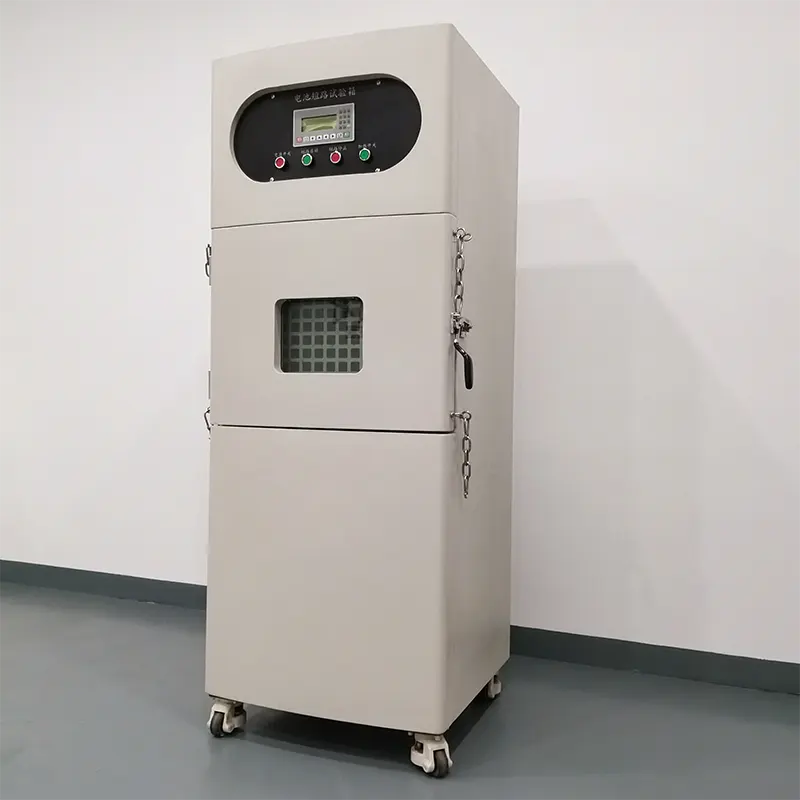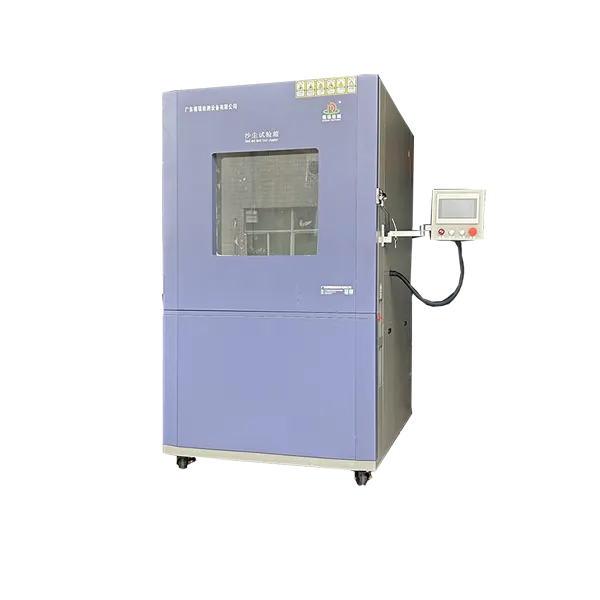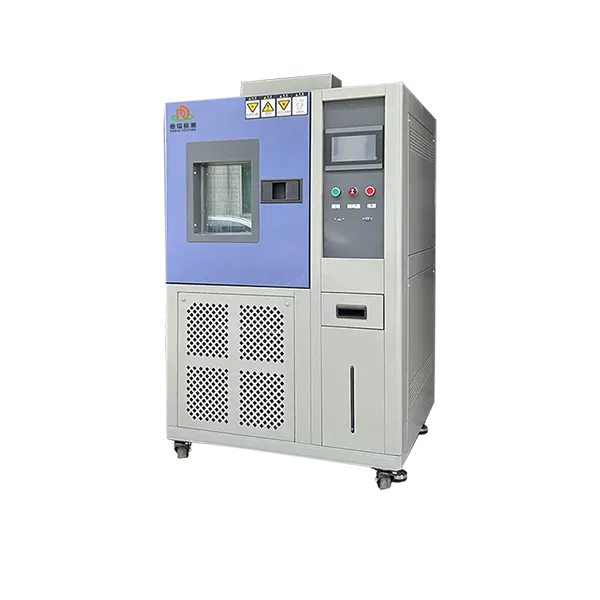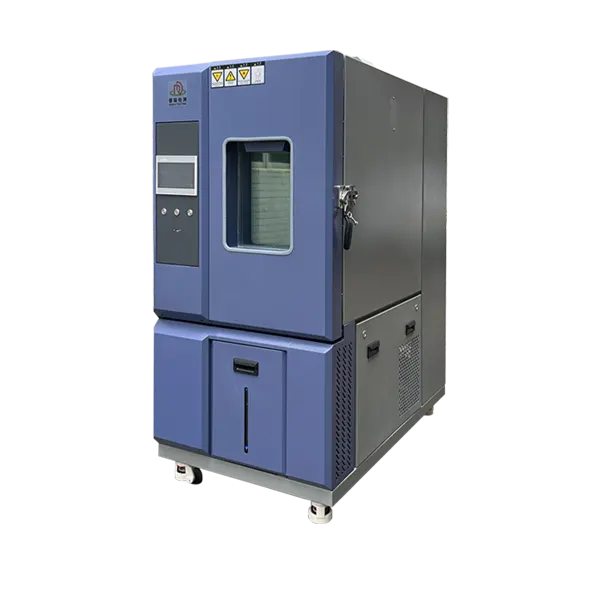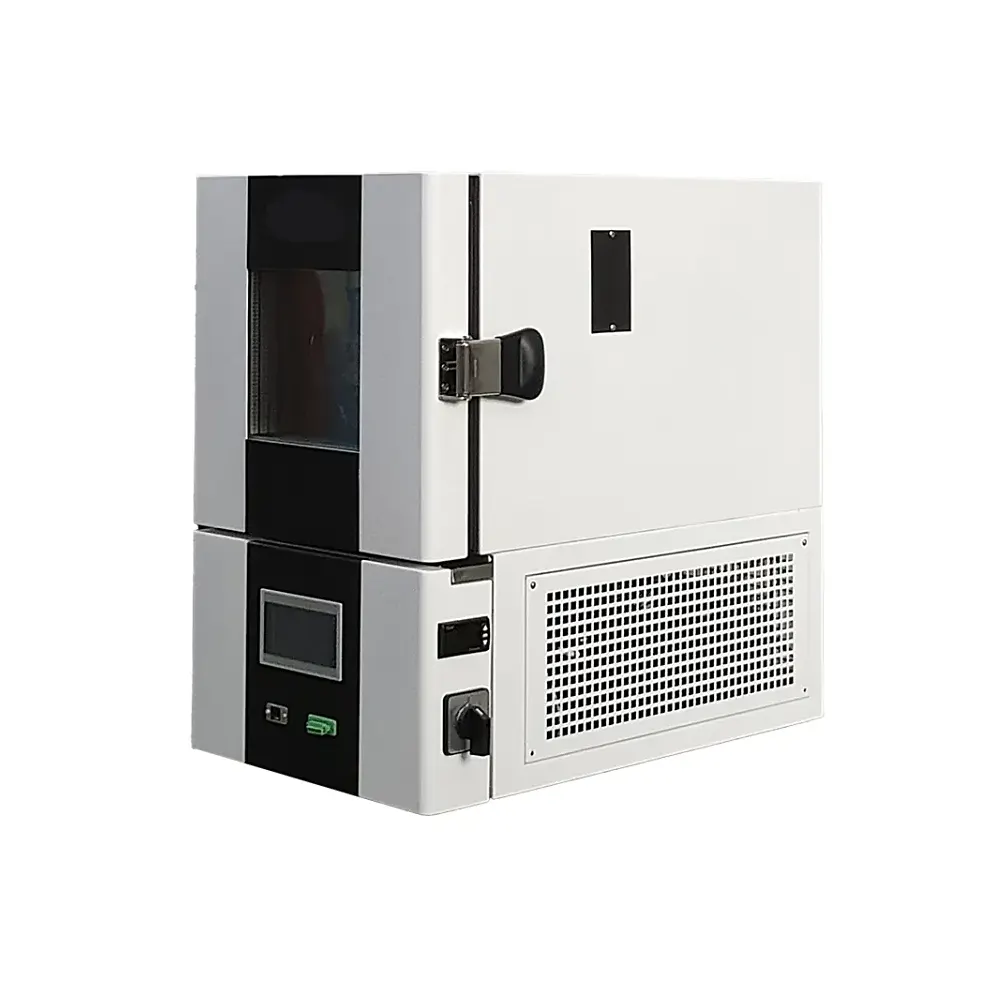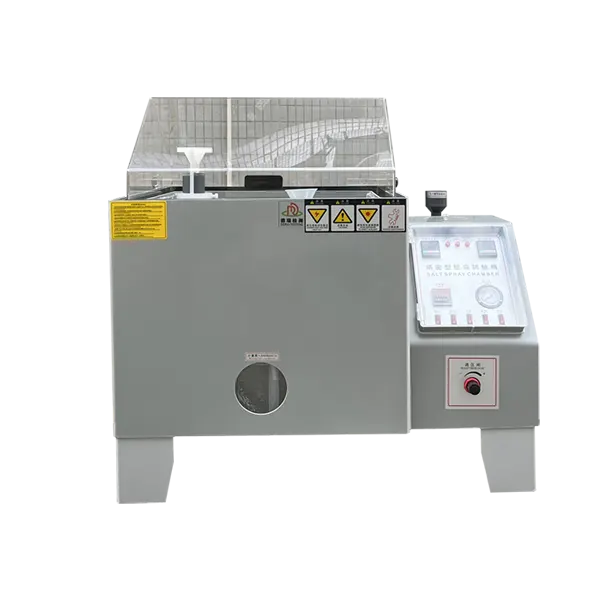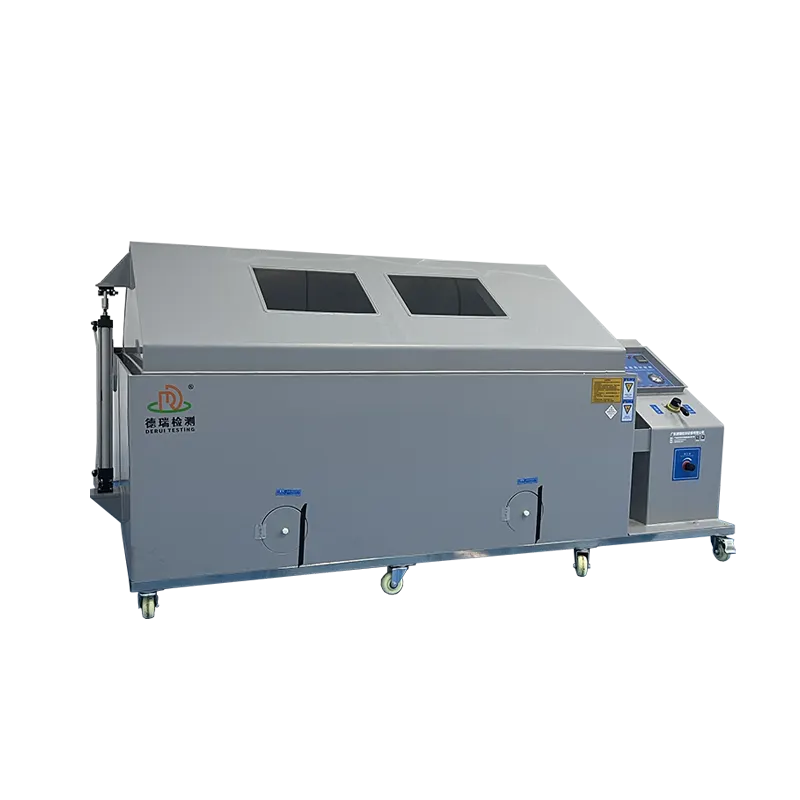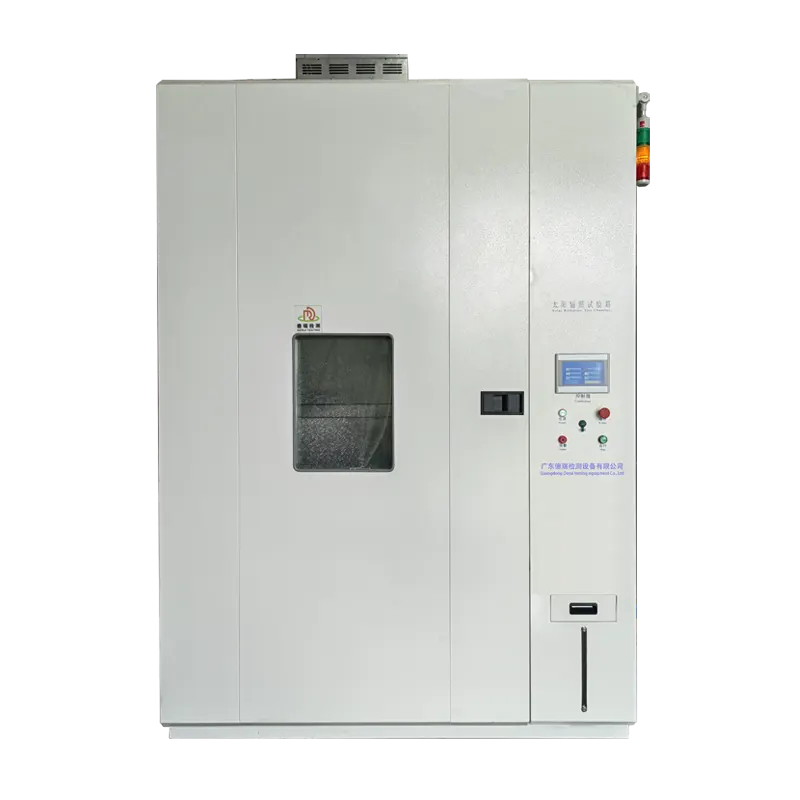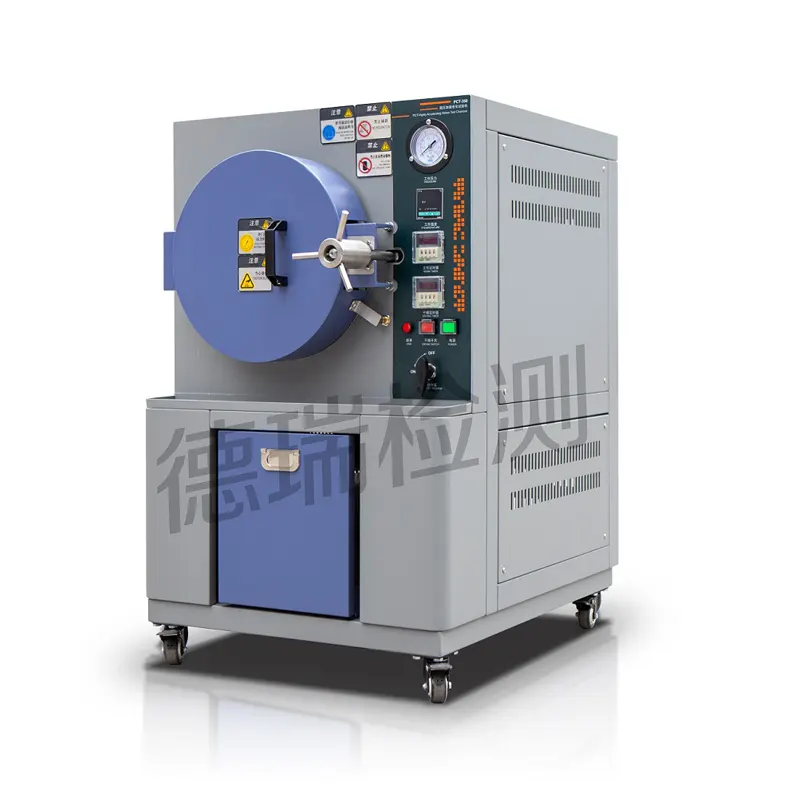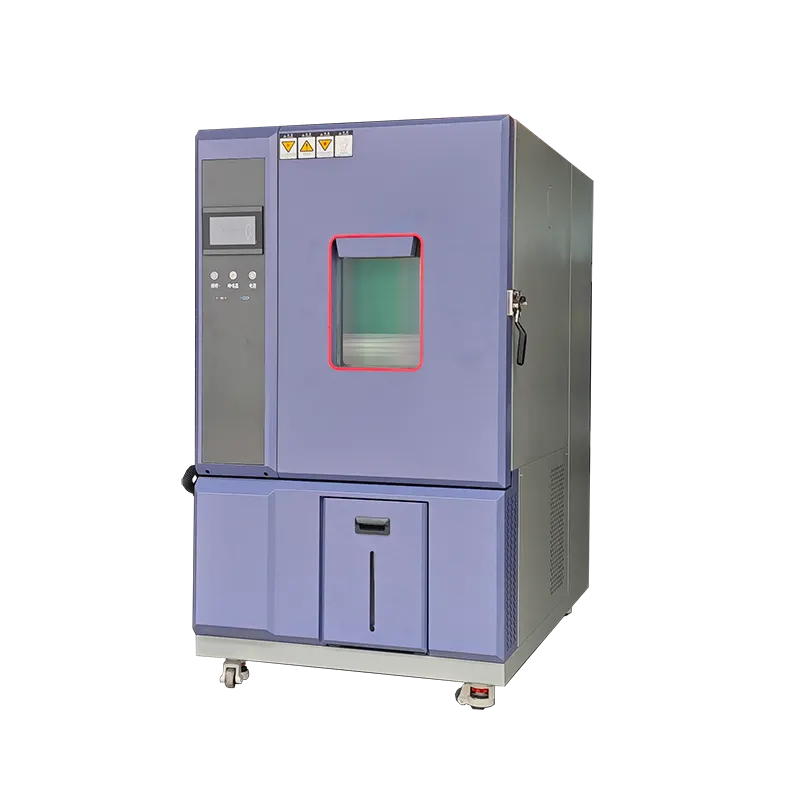The metal salt spray test chamber, as an indispensable and crucial piece of equipment in the fields of materials science, environmental engineering, and quality control, is designed to simulate the corrosive conditions in marine or other salt-containing environments. It is used to assess the corrosion resistance of metals, their alloys, coatings, electroplated layers, and other materials under specific conditions. This testing process is not only related to the durability, safety, and service life of products but also a key link in product quality control and improvement.
Our metal salt spray test chamber are dedicated to providing precise and reliable corrosion resistance testing to ensure that products meet industry standards. Each test chamber undergoes strict quality control to guarantee the accuracy of test results.
Working Principle
The metal salt spray corrosion resistance test chamber creates a high-concentration salt spray environment to accelerate the corrosion process on the metal surface, thereby obtaining the corrosion effect that the material may produce after long-term exposure in the natural environment within a short period of time. Its core components include the spray system, heating system, control system and chamber structure. The spray system atomizes a certain concentration of salt water solution with compressed air to form fine salt spray particles, which are evenly distributed in the test chamber; the heating system maintains a certain temperature and humidity condition in the test chamber to simulate the real corrosion environment; the control system precisely regulates various parameters to ensure the stability and repeatability of the test environment; the chamber structure is made of corrosion-resistant materials to prevent the salt spray generated during the test from causing damage to the equipment itself.
Application fields:
- Automotive manufacturing: It is used to evaluate the corrosion resistance of metal components such as car bodies, chassis, and engine parts in coastal areas or harsh road conditions.
- Aerospace: In the aerospace field, the corrosion resistance of metal materials directly affects the safety and reliability of aircraft. The test chamber is used to screen materials suitable for extreme environments.
- Shipbuilding: Ships are constantly immersed in seawater, and their structural components, pipelines, decks, etc. all need to undergo strict salt spray corrosion tests to ensure stable operation in harsh sea conditions.
- Electronics and electrical appliances: The corrosion resistance of electronic components directly affects the service life and reliability of products. The test chamber is used to evaluate the salt spray corrosion resistance of their casings, connectors, and other parts.
- Building materials: This includes corrosion resistance tests for building materials such as doors and windows, guardrails, and steel structures to assess their durability in humid and salty environments.
Test standard
The standards for salt spray tests usually cover aspects such as test equipment, test conditions, test procedures, and result evaluation. The following are several commonly used salt spray test standards:
- ASTM B117-2019: This is a salt spray test standard formulated by the American Society for Testing and Materials (ASTM), which is applicable to the corrosion resistance performance testing of metallic materials. This standard specifies requirements for test equipment, salt solution concentration, test temperature, spray rate, and test duration, among others.
- ISO 9227:2017: This is a salt spray test standard formulated by the International Organization for Standardization (ISO), also applicable to the corrosion resistance performance testing of metallic materials. Compared with ASTM B117, ISO 9227 has slightly different test conditions, but the basic principles and evaluation methods are similar.
- GB/T 10125-2012: This is a salt spray test standard formulated by the Standardization Administration of China, applicable to the corrosion resistance performance testing of metallic coatings, organic coatings, anodic oxidation films, and conversion films, etc. This standard specifies different types of test methods such as neutral salt spray test (NSS), acetic acid salt spray test (AASS), and copper-accelerated acetic acid salt spray test (CASS).
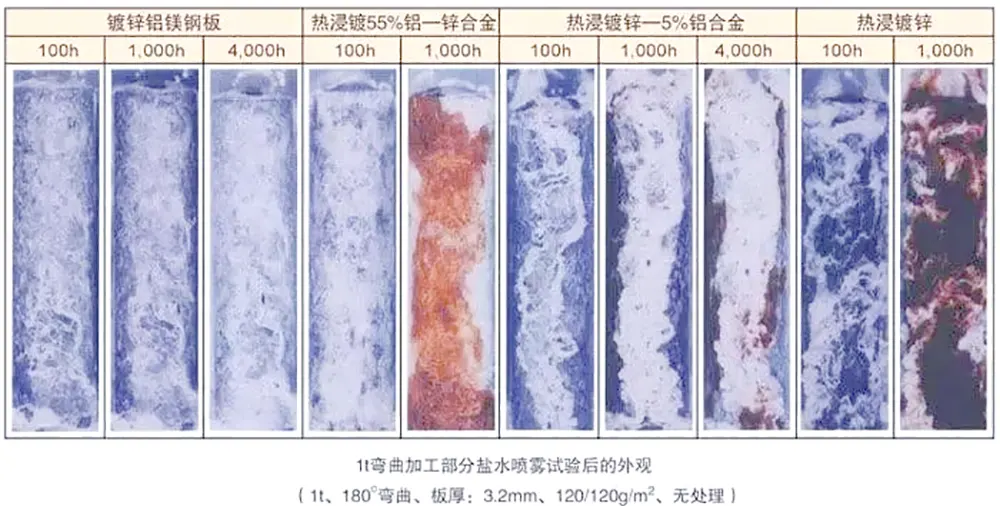
Grade 10: The surface appearance of the sample remains unchanged with no defects, and the appearance rating is A.
Grade 9: The sample surface shows slight to moderate discoloration with defect area not exceeding 0.1%, and the appearance rating is B.
Grade 8: The sample surface has severe discoloration or very slight corrosion products, with defect area ranging from 0.1% to 0.25%, and the appearance rating is C.
Grade 7: The sample surface has severe loss of gloss or very slight corrosion products, with defect area ranging from 0.25% to 0.5%, and the appearance rating is D.
Grade 6: The sample surface has severe loss of gloss or is covered with a thin layer of corrosion products or pitting in some areas, with defect area ranging from 0.5% to 1.0%, and the appearance rating is E.
Grade 5: The sample surface has corrosion products or pitting, and one of them covers the entire surface, with defect area ranging from 1.0% to 2.5%, and the appearance rating is F.
Grade 4: The sample surface has thick corrosion product layers or pitting, with defect area ranging from 2.5% to 5%, and the appearance rating is G.
Grade 3: The sample surface has very thick corrosion product layers or pitting, with deep pitting, and defect area ranging from 5% to 10%, and the appearance rating is H.
Grade 2: The sample shows base metal corrosion, with defect area ranging from 10% to 25%, and the appearance rating is I.
Grade 1: The defect area on the sample surface reaches 25% to 50%, showing obvious corrosion phenomena.
Features of the metal salt spray test chamber:
It adopts an intelligent controller system, with a beautiful and clear display screen. It features a full digital circuit design, accurate temperature control, long service life and complete testing functions.
- The display interface is dynamic during operation and is accompanied by a buzzer alarm to indicate the working status. The instrument adopts ergonomic technology, making operation convenient and simple, and more user-friendly for spray testing.
- It is equipped with an automatic/manual water addition system. When the water level is insufficient, it can automatically replenish the water level without interrupting the test.
- The temperature controller features digital display and PID control with an error of ±0.1 ℃.
- Dual over-temperature protection and low water level warning ensure safe use.
- The laboratory adopts direct steam heating, which features fast and uniform temperature rise and reduces standby time.
- The fine glass nozzle, with adjustable mist, evenly disperses the mist volume through the conical diffuser of the spray tower and naturally falls onto the test card, ensuring no crystalline salt blockage.
Temperature and humidity operation control system:
1.Temperature control: LED digital display PID + S, S, R microcomputer integrated controller
2.Temperature sensor: Platinum resistance, PT100Ω/MV
3.Heating system: Fully independent system, titanium alloy electric heating type heater
4.Spray system: Tower type spray device with non-crystallization nozzle (finer and more evenly distributed mist particles)
5.Spray time: 1 to 99999 (hours, minutes, seconds) and adjustable cycle
6.Salt solution collection: Equipped with standard funnel and standard measuring cylinder
7.Salt solution filtration: Water quality filter is installed at the suction pipe (preventing nozzle blockage and test termination)
8.Salt solution preheating: Salt solution temperature is balanced with the box temperature (preventing 9.the salt solution temperature from being too low and affecting the test temperature)
Derui is an innovative enterprise dedicated to the research and development, production and service of environmental test chamber equipment, committed to providing global customers with high-precision and highly reliable environmental simulation testing solutions. The company's core products include high and low temperature test chambers, humidity and temperature test chambers, temperature shock test chambers, rapid temperature change test chambers, etc., which are widely used in the fields of automobiles, electronics, aerospace, new energy, materials research, etc.
With advanced R&D capabilities, strict production processes and a complete quality control system, Derui Equipment is renowned for its precise temperature control, stable operation and intelligent operation, meeting the requirements of international and industry standards such as ISO, GB and IEC. The company adheres to a customer-oriented approach, providing full-service from pre-sale consultation, customized solutions to after-sale technical support, helping enterprises enhance product reliability and market competitiveness.




